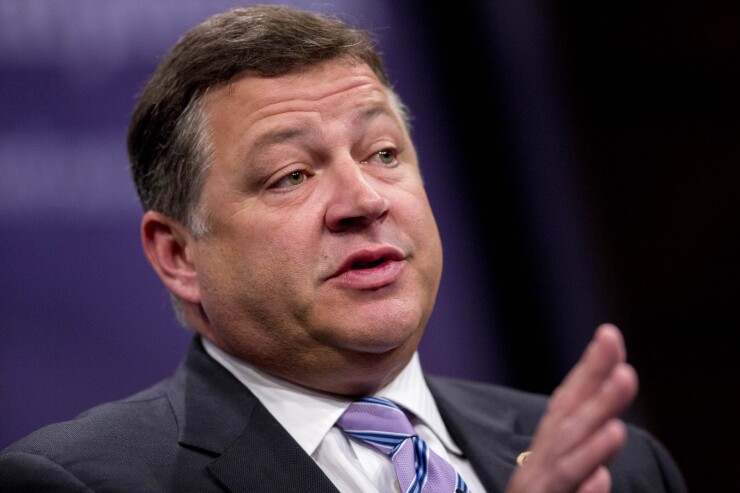
DALLAS – The House passed a six-year, $325 billion transportation funding measure on Thursday that must be reconciled quickly with the $342 billion proposal adopted by the Senate in late July.
The House voted, 363 to 64, to amend the Senate's DRIVE Act (H.R. 22) by incorporating the annual funding levels and other provisions of the Surface Transportation Reauthorization and Reform Act of 2015 (H.R. 3763) adopted last month by the House Transportation and Infrastructure Committee.
The current reauthorization of federal transportation funding will expire on Nov. 20, although the Highway Trust Fund is expected to remain solvent through the end of 2015 with the $8 billion of general revenues transferred to the HTF by the 22-day extension (P.L. 114-73) approved by Congress in late October.
The House measure accepts many of the $35 billion of revenue offsets in the Senate bill that fully fund the measure through fiscal 2018. The transfer of general revenues is needed to supplement the $40 billion per year generated by the federal gasoline tax and other levies dedicated to the HTF.
However, the House on Thursday added a revenue-offset amendment by Rep. Randy Neugebauer, R-Texas, and Rep. Bill Huizenga, R-Mich., that would liquidate the Federal Reserve's $29.3 billion surplus account and deposit the balance into the general fund.
The proposal, which passed 354 to 72, would replace the Senate's $16.3 billion offset realized by reducing the fixed dividend rate the Fed pays to larger banks to 1.5% from the current 6%, and a $1.9 billion offset from an increase in the mortgage fees charged by Fannie Mae and Freddie Mac.
A non-binding amendment that would have turned most transportation funding and taxing authority to the states was defeated, 118 to 310.
After the six-year bill was adopted, the House rejected an effort by Democrats to instruct members of the conference committee to agree to the higher funding in the Senate proposal.
"The DRIVE Act provides $342 billion over six years, $17 billion more than the House bill," said Rep. Jared Huffman, D-Calif.
The House plan would provide $261 billion of federal highway funding and $55 billion for public transit, while the Senate version includes $273.4 billion for highways and $59.3 billion for transit.
The House measure cuts funding for the Transportation Infrastructure Finance and Innovation Act low-cost loan program to $200 million per year from fiscal 2015's $1 billion. The Senate bill funds TIFIA at $300 million per year.
Conferees should also insist on including a provision now in the House bill that would automatically allocate more funding to transportation if Congress can agree on additional revenues, Huffman said.
Huffman criticized House leaders and Republicans on the Rules Committee who blocked consideration of amendments to raise additional revenues for the HTF. The House voted on 126 amendments selected by the Rules Committee for floor action from the more than 300 proposed by lawmakers.
"Democrats proposed several options, including an increase in the gasoline tax, but the Republican leadership would not let this happen," he said.
Rep. Bill Shuster, R-Pa., chairman of the transportation committee and architect of the STRR Act, said talks would begin soon on finding additional sources of revenue for transportation.
"As soon as we get this bill passed, I want to sit down with the stakeholders so we can move forward in the future to have a fully funded, robust HTF," he said.
Sen. Jim Inhofe, R-Okla., chairman of the Senate Environment and Public Works Committee, and the committee's ranking minority member Sen. Barbara Boxer, D-Calif., applauded the House action in a joint statement on Thursday.
"Today the House of Representatives gave strong bipartisan support for a long-term surface transportation bill, which enables us to move forward to conference so we can work out our differences and get this legislation to the President's desk by Thanksgiving," Inhofe and Boxer said.





